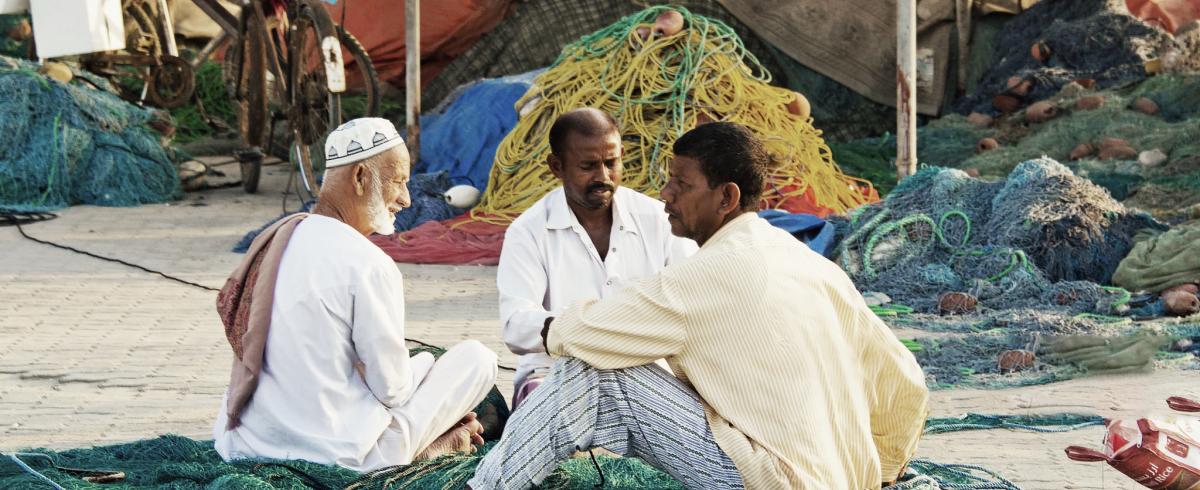
Categories to Explore
Welcome to the Resource Library. Here you will find a range of resources that you can use to support your small-scale fishery and community. Use the buttons above to browse resources by category or use the filters on the right to sort resources.
Les Directives pour une Pêche Artisanale Durable Wolof +
"This animation is a whistle stop tour about the Voluntary Guidelines for Securing Sustainable Small-Scale Fisheries with a Wolof sound track particularly for people in Senegal and neighbouring countries most comfortable with this language."
Gender equality is diluted in commitments made to small-scale fisheries
This study examines the role of gender, gender equality, and gender equality strategies in small-scale fisheries.
Exploring gender inclusion in small-scale fisheries management and development in Melanesia
"Fisheries, like other sectors, is not immune to gender inequality, and women tend to experience the brunt of inequality as undervalued and underrepresented actors in fisheries management and development. A comprehensive understanding of the gender approaches in use, including potential barriers to their implementation, is needed to promote gender equitable outcomes in the small-scale fisheries (SSF) sector."
Information and communication technologies for small-scale fisheries (ICT4SSF) - A handbook for fisheries stakeholders
The aim of this report is to present evidence towards how Information and Communication Technologies for Small-scale Fisheries (ICT4SSF) might enable and support the implementation of the FAO’s Voluntary Guidelines for Securing Sustainable Small-Scale Fisheries in the Context of Food Security and Poverty Eradication (SSF Guidelines). We present case studies of ICT4SSF initiatives in different use areas to identify key themes and reflect on successes and failures.
IUCN Guidelines for gathering of fishers' knowledge for policy development and applied use
"These voluntary IUCN Guidelines for gathering of fishers’ knowledge for policy development and applied use (the “Fishers’ Knowledge Policy Development Guidelines”) provide much needed practical and theoretical guidance on what and how gathering Fishers’ Knowledge can be utilized in policy development and in society today. Fishers’ Knowledge includes indigenous and traditional knowledge and experienced persons who have been involved in a fishery and community over an extended period of time. "
Manual of Good Hygiene Practice for Fishing Boats and Fish Landing Sites in Small-scale Fisheries
"This manual provides small-scale fisheries stakeholders with guidance on how to handle fishery products (FP) hygienically and carefully to produce food that is safe to eat and of high quality. It is intended for use by small scale fishers and other stakeholders in community based FP supply chains. It is a working manual and aims to raise awareness of hygiene and quality standards and how to achieve them. The overall aim of the manual is to provide small scale fisheries stakeholders with the basic knowledge to improve food health quality of FP, reduce post harvest losses and so increase income from small-scale fishery operations."
Too Big To Ignore: Blue Justice for Small-Scale Fisheries - A Global Scan, Volume 1
"TBTI has gathered stories and examples of policies, programs, projects, initiatives, regulatory frameworks, as well as other situations that create different types of injustice and inequity in small-scale fisheries. This first release of the ‘Blue Justice for Small-Scale Fisheries – A Global Scan’ e-book contains 18 stories from 14 countries."
Too Big To Ignore: Blue Justice Infographic
Infographic on Blue Justice from Too Big To Ignore.
Too Big To Ignore: Let's commit to Blue Justice
Join TBTI Global and its members around the world to speak up and take action for social justice for small-scale fisheries
Strengthening organizations and collective action in fisheries: Towards the formulation of a capacity development program
This document provides a summary of the presentations, discussions, working group sessions and recommendations of the workshop “Strengthening organizations and collective action in fisheries: towards the formulation of a capacity development programme,” held in Barbados on 4–6 November 2014. The document also includes the nine in-depth case studies presented during the workshop and a contributed paper.
